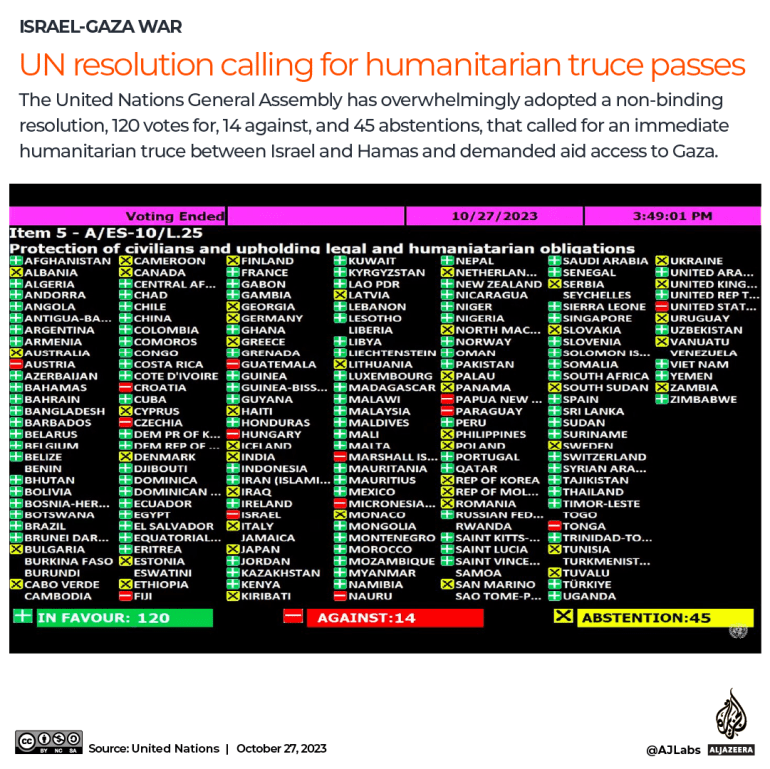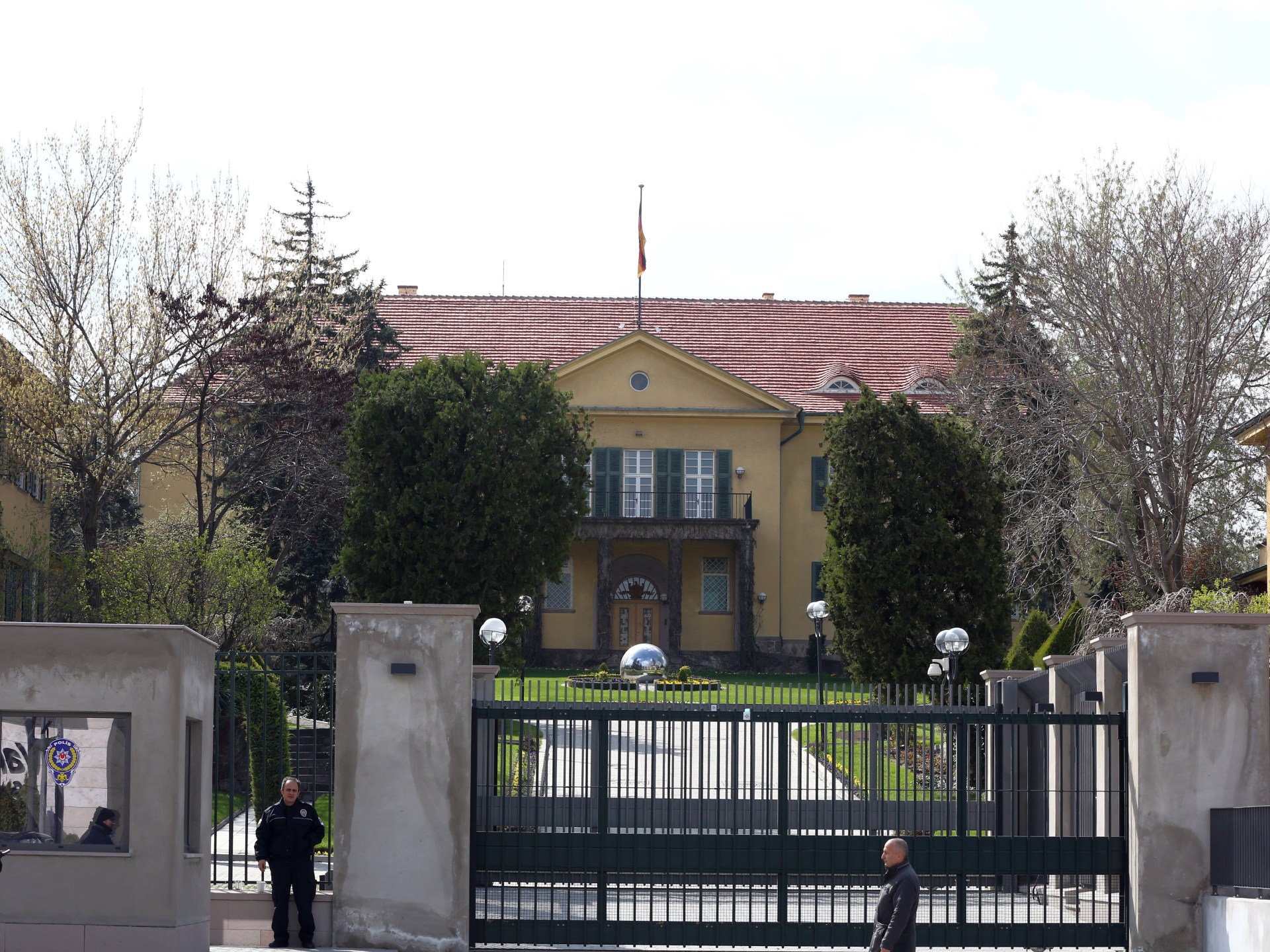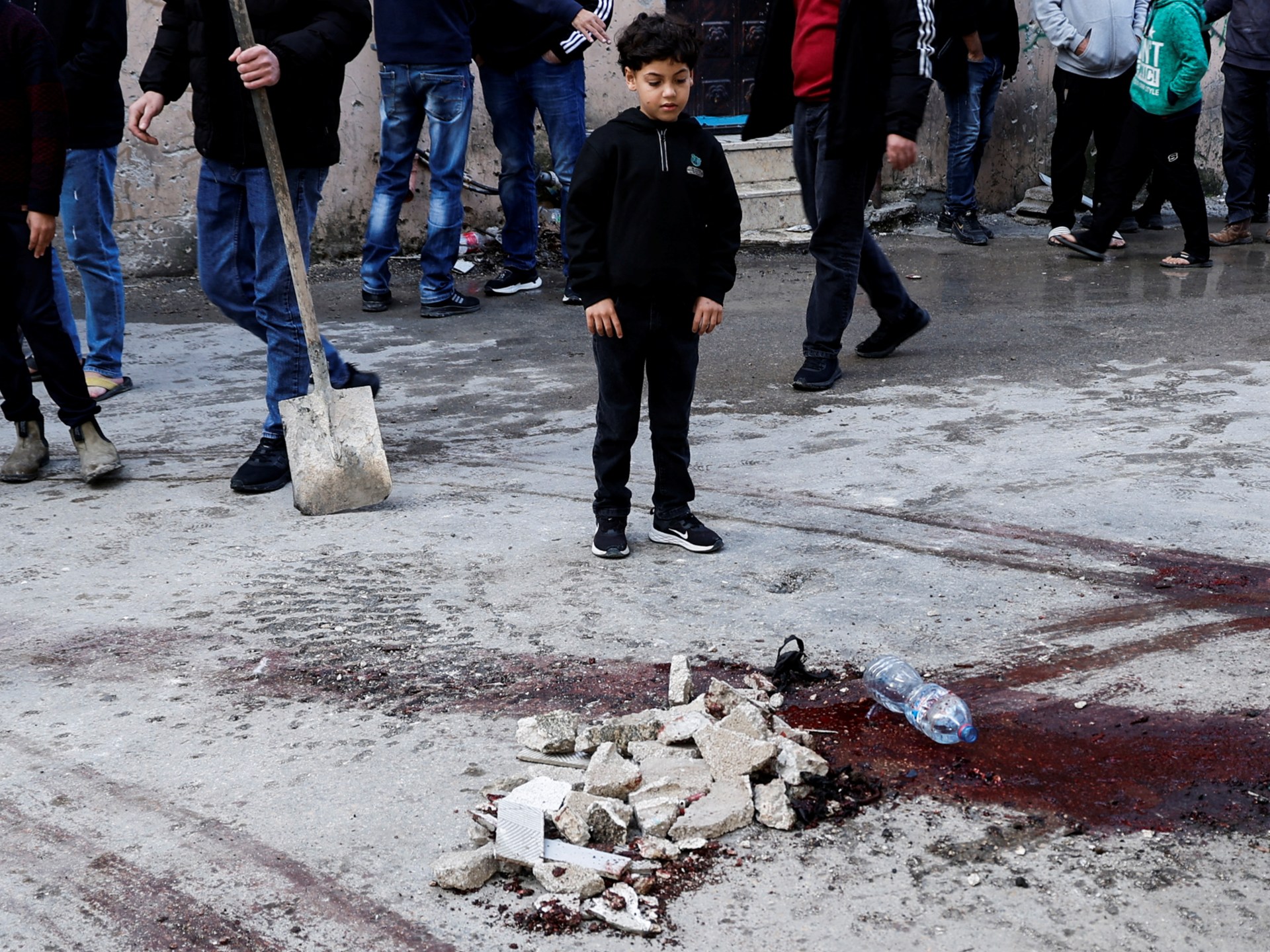Once pro-Palestinian, Greece is now one of Israel’s closest European allies | Israel-Palestine conflict News
Athens, Greece – Greece has emerged as a key supporter of Israel in the Eastern Mediterranean, a position unimaginable little more than a decade ago and apparently at odds with public opinion.
“I come here not just as an ally but as a true friend,” Greek Prime Minister Kyriakos Mitsotakis told his Israeli counterpart, Benjamin Netanyahu, in Tel Aviv on October 23, as the latest Middle East conflict flared.
“Greece, from the very first moment, supported the right of Israel to defend itself in line with international law,” he said.
Unlike some other European leaders who demonstrated similar solidarity, Mitsotakis did not also pay a courtesy visit to Mahmoud Abbas, leader of the Fatah Palestinian movement.
That may rankle with the two-thirds of Greeks, who support neutrality in the current war.
While just 18.4 percent are in favour of a pro-Israel position, 11.5 percent want Greece to be openly pro-Palestinian, according to an opinion poll aired by Star Channel two days after Mitsotakis’s visit.
Despite championing humanitarian aid for Palestinian civilians trapped in Gaza, Greece was one of 45 abstentions from a UN General Assembly vote calling for an immediate humanitarian truce between Israel and Hamas, on October 27. A majority of 120 countries voted in favour.
“Eight EU members voted for the UN call for a humanitarian ceasefire. Greece, under Mitsotakis, chose not to be among them,” European Parliament member for the opposition Syriza party, Dimitris Papadimoulis, told Al Jazeera.

Anyone who “wants humanity and peace to prevail” would follow a “more balanced position that also maintains good relations with the Arab world – a position that is conducive to a solution for the Palestinians,” Papadimoulis said.
Greece did, however, join a European Council call for “safe and unhindered humanitarian access” in Gaza on October 27, “including humanitarian pauses and corridors”.
But Greece has gone beyond statements in helping Israel.
According to Greek media, large numbers of United States C-17 and C-130 transport aircraft have been stationed at the US air and naval base at Souda Bay, in Crete, and the Greek air force base at Elefsina, near Athens, in case a mass evacuation of US citizens from Israel should be necessary.
An historic change
Greece’s official foreign policy position, now backed by right- and left-wing parties when in power, is starkly different to its traditionally pro-Palestinian policy during the Cold War, when Greece and Israel still had not developed full diplomatic relations.
When Netanyahu’s predecessor, Menachem Begin, invaded Lebanon to destroy the military wing of the Palestine Liberation Organization in 1982, Greek ships spirited the organisation’s leader, Yasser Arafat, to safety in Athens.
Back then, expatriate Palestinians frequently held demonstrations on the streets of Athens with Greek left-wing party support, to trumpet their cause on European soil.

The support for Palestinians was not merely sentimental.
Greek-owned tankers carry a third of the world’s crude oil, and that trade dictated good relations with the Arab world for decades.
Another reason was Turkey’s invasion of Cyprus in 1974.
“Greece was very interested in getting UN votes in favour of its position on the Cyprus issue,” Aristotle Tziampiris, professor of international relations at the University of Piraeus told Al Jazeera. “You had to weigh one Israeli vote versus 20 or so Arab votes.”
The beginnings of rapprochement occurred in 1990, when Mitsotakis’s father, former prime minister Konstantine Mitsotakis, fully and legally recognised Israel, which he considered necessary “for the restoration and establishment of peace in the region”.
However, Israel’s close relationship with Turkey in the 1990s was a problem for Greece.

“The Turkish criterion, a permanent fixture in the Greek foreign ministry, dictates that we can’t have good relations with Israel if it is also developing its relations with Turkey,” a senior Greek government official told Al Jazeera on condition of anonymity.
“We put this dilemma to them and the Israelis in those days had much more strategic interests in Turkey, so we forced them to pick Turkey.”
In 2010, another clash between the Israeli army and Hamas changed everything.
Turkish President Recep Tayyip Erdogan sent a flotilla with humanitarian assistance to the Palestinians’ aid. Israeli commandos attacked the flotilla, suspecting it of carrying weapons, killing nine people.
The breakdown in Turkish-Israeli relations was a void Greece’s political establishment moved to fill “with astonishing speed”, said Tziampiris.
“Israel has been looking at Greece all these years as a gateway to the European Union that could facilitate Israel’s relationship with the EU and soften its isolation due to Israel’s behaviour towards the Palestinians,” said the government official.
Greece’s budding friendship with Israel “is not personal or partisan, but represents a national strategy that is going on for close to 15 years”, said Tziampiris.
In a country whose politicians are given to infighting and frequently placing party interests above national interests, that, he said, is “something to be admired”.
Greece had its own reasons to embrace Israel.
It had essentially gone bankrupt that year, and needed a bailout from its eurozone partners and the International Monetary Fund in Washington. By signalling support for Israel, it drew closer to the US.
Greece was also becoming part of a budding energy partnership. 2010 was the year in which Israel discovered Leviathan, holding an estimated 566 billion cubic metres of gas and turning Israel overnight into the Eastern Mediterranean’s biggest owner of exportable gas.
The following year, Greece and Israel started discussing building EastMed – a 1,900km-long (1,180-mile), $7bn mostly undersea pipeline to carry 10-20 billion cubic metres of Israeli gas to Europe via Greece each year.
Greek hydrocarbon companies have formed a consortium to build that pipeline, and one Athens-based company already plays a strategic role in the Israeli economy. Partly through Israeli financing, Energean now operates a floating production, storage and offloading (FPSO) platform anchored offshore Israel, which extracts and liquefies Israeli offshore gas for export.
Defence relationship
When in 2020 Greek-Turkish relations became tense, Greece sought a relationship with Israel’s sophisticated defence industry.
Greece signed its first military agreement with Israel on May 6 2020, leasing two Heron UAVs to monitor the Aegean. Greece had been caught unawares by Turkey’s development of its Bayraktar drones and needed the Herons as an interim solution before developing its own UAVs – something the Hellenic Aerospace Industry is now doing in collaboration with Greek universities.
In 2022, Greece would also buy the Drone Dome anti-drone defence system from Israel’s Rafael Advanced Defense Systems, and in 2023 it would buy dozens of Orbiter 3 surveillance and reconnaissance drones, also from Rafael.
Mitsotakis signed cybersecurity cooperation protocols with Netanyahu in June 2020, and invited Israeli investors to use Greece as a base from which to reach the EU single market, especially in IT.
Unlike in 2010, when Greece’s economy was teetering, the invitation now had takers.
In February 2021, Israeli defence manufacturers SK Group and Plasan took control of the defunct Hellenic Vehicles Industry (ELVO).
In 2022, Greece and Israel’s Elbit launched a joint flight training centre in the southern Greek town of Kalamata. Israel had once sought training airspace from Turkey. Now it had the use of Athens’ vast flight information region.
In 2023, Greece bought 34 Spike NLOS short-range missile defence systems with about 500 missiles from Israel’s Elbit to protect its east Aegean islands.
Turkey has moved in the opposite direction during this time, offering Hamas leaders passports and offices on Turkish soil.
Erdogan recently frustrated Washington when he said Hamas was not a “terrorist” organisation and called Israel an occupier.
That places Greece and Turkey on opposite sides during the conflict in Gaza.
“Hosting Hamas was always an issue between Israel and Turkey and when we talked about rapprochement it was an issue that was on the table, and it’s still on the table,” Israeli ambassador Noam Katz told Greece’s Open TV.




